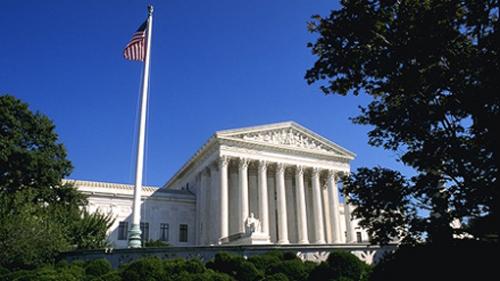
The recent Supreme Court ruling April 2 of McCutcheon v. the Federal Election Commission sparked multiple divisions, between socioeconomic classes, in the courtroom, and even on SMU’s campus. The case dealt with issues over regulating campaign finances, specifically focusing on limiting individual donations.
A 5-to-4 decision ended this debate, with a strike down on the aggregate cap on campaign contributions. This leaves a base limit of $2,600 an individual can donate to a federal candidate per election intact. Before, individuals had an aggregate limit of $48,600 to donate to candidates for a federal office and $74,600 to PACs and
other organizations.
“Now, an individual can donate endless sums to super PACs and other organizations,” said political science professor Matthew Wilson.
Previous rulings stated that an individual could not give more than a total of $123,000 to numerous candidates in an election cycle.
Issues over campaign finances have been problems in the past. In 1976, after the Watergate scandal, the Supreme Court case Buckley v. Valeo placed limits on campaign contributions by Congress. McCutcheon paralleled the 2010 decision on Citizens United, which stuck down limits on independent campaign spending by corporations and unions.
SMU political science professor Cal Jillson notices a pattern in the Supreme Court’s history of making things easier for those more well-off.
“Wealthy donors have always had more influence on elections than regular voters and have always had many ways to make that influence felt,” Jillson said. “Recent Supreme Court decisions, including Citizens United and McCutcheon, have simply made the process exercising influence simpler for the wealthy.”
The case started when a conservative, Alabama businessman named Shaun McCutcheon, sought to donate more money to candidates. He believed these limitations violated the First Amendment. The Republican National Committee joined him to fight against this issue.
The Federal Election Commission believes limits are necessary to fight corruption.
The Supreme Court divided over the issue. In general terms, liberals want to preserve campaign finance restrictions in order to ensure that democracy is not damaged by the wealthy and the powerful. Conservatives argue these restrictions go against the First Amendment, which they say prohibits the government to control who pays for elections and how much they spend.
“I do not agree with the McCutcheon decision because I do not believe that money is speech in any simple or direct sense,” Jillson said.
Political science student Ted McGuire alleged McCutcheon v. the Federal Election Commission spoke to the importance of SMU students staying abreast of the
recent decision.
“University students are part of the American electorate. This decision affects all of us,” McGuire said.








